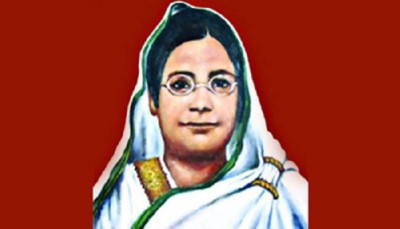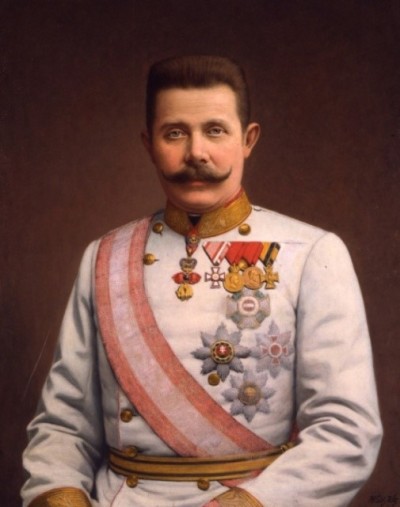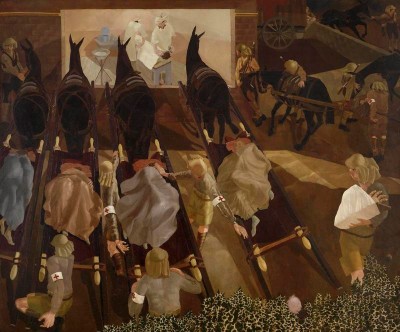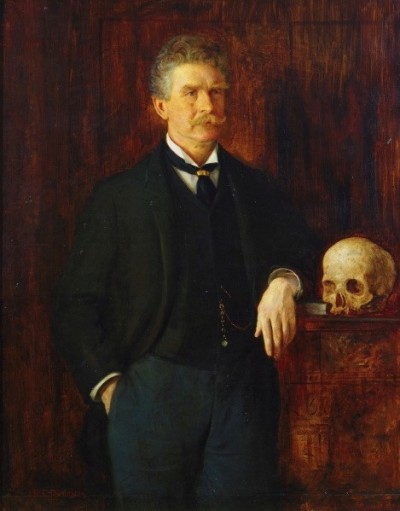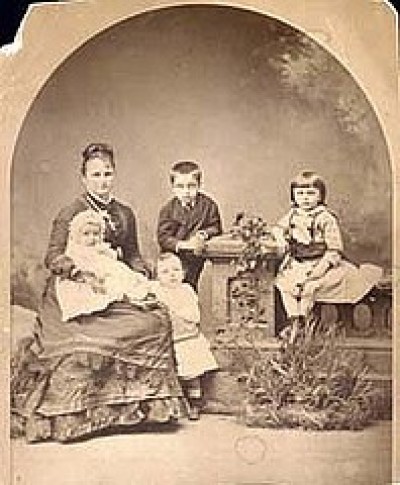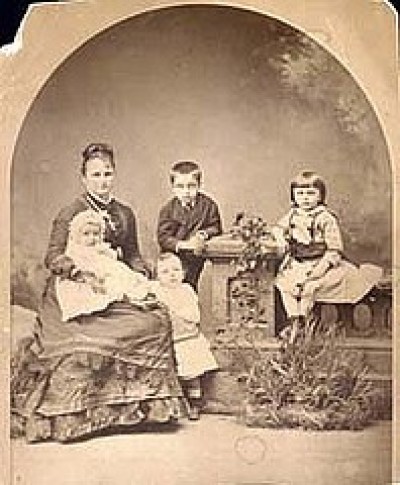Course description
Begum Rokeya – Sultana’s Dream
Rokeya Sakhawat Hossain was an influential social activist in British India, born in 1880 in Rangpur, a district of what is now Bangladesh. Her home life was comfortable as her father was a wealthy zamindar. He had four wives and Rokeya had five brothers and sisters. The girls were not allowed to go to school but educated themselves at home. Her sister, Karimunessa, was very important to Rokeya, especially because she wanted to be educated in Bangla, the language of the people, rather than the Arabic or Persian their father thought more suitable languages for schooling. Luckily, their brother, Ibrahim, taught them Bangla as well as English.

Rokeya married a man twenty years her senior when she was just eighteen. He was liberal and encouraged his young wife in her literary interests, suggesting that she should write in Bengali, rather than Urdu, his own first language. When her husband died, she opened the Sakhawat Girls’ School in his name and continued to take an interest in it until her death.
Rokeya also founded Anjuman-e-Khawateen-e-Islam (Islamic Women's Association) for discussion of society and women’s place in it. Rokeya believed that both education and employment were essential to women living with respect and contributing to the development of their country. She argued that religion was used to hold women back and that humanity had forgotten the true values of Islam. She had this to say about it:
“Whenever any woman tries to raise her head, weapons in the form of religions … push her down. … Men use and spread scriptures as God's words to subdue us in darkness. … Those scriptures are nothing but systems built by men. The words we listen to from male saints would be different if they were spoken by female ones. … Religions only enforce our slavery and justify male domination over women.”
Begum Rokeya died on her 52nd birthday on 9th December, 1932, a day still commemorated in Bangladesh.
Sultana’s Dream
One evening I was lounging in an easy chair in my bedroom and thinking lazily of the condition of Indian women. I am not sure whether I dozed off or not. But, as far as I remember, I was wide awake. I distinctly saw the moonlit sky sparkling with thousands of diamond-like stars.
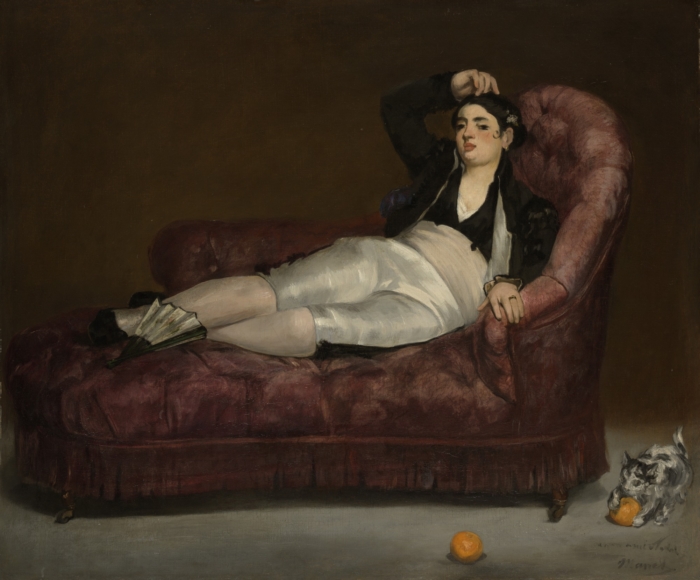
Young_Woman_Reclining_in_Spanish_Costume_by_Édouard_Manet.jpeg (700×580)All of a sudden, a lady stood before me; how she came in, I do not know. I took her for my friend, Sister Sara.
'Good morning,' said Sister Sara. I smiled inwardly as I knew it was not morning, but starry night. However, I replied, 'How are you?'
'I am alright, thank-you. Will you please come and have a look at our garden?'
I looked again at the moon through the open window, and thought there was no harm going out at that time. The men-servants outside were fast asleep, and I could have a pleasant walk with Sister Sara.
I used to walk with Sister Sara, when we were at Darjeeling. Many times we walked hand in hand and talked light-heartedly in the gardens there. I imagined Sister Sara had probably come to take me to a garden like that and I readily accepted her offer.
When I began walking, I found to my surprise that it was morning. The town was awake and the streets alive with bustling crowds. I felt very shy, thinking I was walking in the street in broad daylight, but there was not a single man visible.
Some of the passers-by laughed at me. Though I could not understand their language, yet I felt sure they were joking. I asked my friend, 'What are they saying?'
'The women say you look very mannish.'
'Mannish?' said I, 'What do they mean?'
'They mean you are shy like men.'
'Shy like men?' It was obviously a joke. I became very nervous, when I found that my companion was not Sister Sara, but a stranger. Oh, what a fool I had been to mistake this lady for my dear old friend.
She felt my fingers tremble in her hand.
512px-Women_Walking_on_Eglinton.jpg (512×411)'What ‘s the matter, my dear?' she asked. 'I feel awkward,' I said in an apologetic tone. 'As I am a woman living in purdah, I am not used to walking about without a veil.'
'You needn’t be afraid of coming across a man here. This is Ladyland, free from sin and harm. Virtue governs here.'
By and by, I started to enjoy the scenery. Really it was very grand. I mistook some grass for a cushion. Feeling as if I were walking on a soft carpet, I looked down and found the path covered with flowers.
'How nice it is,' I said.
'Do you like it?' asked Sister Sara. (I continued calling her 'Sister Sara,' and she kept calling me by my name).
'The whole place looks like a garden,' I said admiringly. 'You have arranged every plant so prettily.'
'Your city could be a nice garden like this if only your countrymen wanted to make it so.'
'They would not think it useful to pay so much attention to gardening, while there are many other things to do.'
'They could not find a better excuse,' said she with a smile.
I became very curious to know where the men were. I met more than a hundred women while walking, but not one man.
'Where are the men?' I asked her.
'In their proper places, where they ought to be.'
'What do you mean by "their proper places"?'
'O, I see my mistake, you don’t know our customs. We shut up our men indoors.'
'Just as we are kept in the zenana?'
'Exactly.'
'How funny,' I burst out laughing. Sister Sara laughed too.
'But, dear Sultana, how unfair it is to shut in harmless women and let men loose.'
'Why? It isn’t safe for us to come out of the zenana, as we are naturally weak.'
'Yes, it isn’t safe so long as there are men about the streets, nor is it when a wild animal enters a marketplace.'
'Of course not.'
'Suppose, some lunatics escape from the asylum and begin to do all sorts of mischief to men, horses and other creatures; in that case what will your countrymen do?'
'They will try to capture them and put them back in their asylum.'
'Thank you! And you don’t think it is wise to keep sane people in an asylum and release the lunatics?'
'Of course not!' I said, laughing lightly.
'As a matter of fact, in your country that is exactly what you do. Men, who do or are at least capable of doing every type of mischief, are let loose and innocent women are shut up in the zenana! How can you trust those untrained men out of doors?'
'We have no hand in the management of our social affairs. In India, man is lord and master, he has taken for himself all the power and privilege and shut up the women in the zenana.'
'Why do you allow yourselves to be shut up?'
'Because they are stronger than women.'
'A lion is stronger than a man, but it does not mean that he can dominate the human race. You have neglected the duty you owe to yourselves and you have lost your natural rights by shutting your eyes to your own interests.'
'But my dear Sister Sara, if we do everything by ourselves, what will men do then?'
'They should not do anything; they are fit for nothing. Only catch them and put them in the zenana.'
'But would it be very easy to catch and imprison them inside four walls?' I asked. 'And even if this were done, would all their business – political and commercial – also go with them into the zenana?'
Sister Sara made no reply. She only smiled sweetly. Perhaps she thought it useless to argue with one who could understand so little.
By this time, we had reached Sister Sara's house. It was in a beautiful heart-shaped garden. It was a bungalow with an iron roof and it was cooler and nicer than any of our rich buildings. I cannot describe how neat, how nicely furnished and tastefully decorated it was.
We sat side by side. She brought out of a piece of embroidery and began putting on a fresh design.
'Do you know knitting and needlework?'
'Yes; we have nothing else to do in our zenana.'
'But we do not trust our zenana members with embroidery!' she said laughing, 'as a man doesn’t have enough patience!'
'Have you done all this work yourself?' I asked, pointing to the various pieces of embroidery in the room.
'Yes.'
'How did you find time to do all this? You have to do office work as well, don’t you?'
'Yes. I do not stay in the laboratory all day long. I finish my work in two hours.'
'In two hours! How do you manage? In our land the officers, – magistrates, for instance – work eight hours a day.'
'I have seen some of them doing their work. Do you think they work all eight hours?'
'Certainly they do!'
'No, dear Sultana, they do not. They waste their time smoking. They talk a lot about work, but do little.'
We talked about various subjects, and I learned that the ladies did not suffer from any disease, nor were they bothered by mosquitoes as we are. I was astonished to hear that in Ladyland no-one died young, except in rare accidents.
'Would you like to see our kitchen?' she asked me.
'With pleasure,' I said. Of course the men had been asked to clear off as I was going there. The kitchen was in a beautiful vegetable garden. Every flower, every tomato plant was an ornament. I found no smoke, nor any chimney both in the kitchen – it was clean and bright; the windows were decorated with flower gardens. There was no sign of coal or fire.
'How do you cook?' I asked.
'With solar heat,' she said, at the same time showing me the pipe, where concentrated sunlight and heat passed. And she cooked something then and there to show me the process.
'How did you manage to gather and store the sun’s heat?' I asked her in amazement.
'Let me tell you a little of our past history then. Thirty years ago, when our present Queen was thirteen years old, she inherited the throne. She was Queen in name only, the Prime Minister really ruled the country.
Ladies_cabul1848b.jpg (469×609)'Our good Queen liked science very much. She gave an order that women in her country should be educated. Accordingly, a number of girls' schools were founded and supported by the government. Education spread far and wide among women. And early marriage was stopped too. No woman was allowed to marry before she was twenty-one. Before this, we had been in strict purdah.'
'How things change!' I laughed.
'But the seclusion is the same,' she said. 'In a few years we had separate universities, where no men were admitted.
'In the capital, where our Queen lives, there are two universities. One of these invented a wonderful balloon, to which they attached a number of pipes. With this balloon, which they managed to keep above the clouds, they could draw as much water from the atmosphere as they wanted. As the water was constantly collected by the university, there were no clouds and that’s how the ingenious Lady Principal stopped rain and storms.'
'Really! Now I understand why there’s no mud here!' But I could not understand how it was possible to collect water in the pipes. She explained to me how it was done, but I was unable to understand, as my scientific knowledge was very limited. However, she went on, 'When the other university came to know of this, they became jealous and tried to do something more extraordinary. They invented an instrument to collect as much heat from the sun as they wanted. And they kept the heat stored up to be shared as needed.
'While the women were busy with scientific research, the men of this country were busy increasing their military power. When they came to know that the female universities were able to draw water from the atmosphere and collect heat from the sun, they only laughed at the universities and called the whole thing a joke!'
'Your achievements are wonderful! But tell me how you managed to put the men into the zenana. Did you trick them first?'
'No.'

It’s not likely they would surrender their freedom of their own accord and confine themselves within the four walls of the zenana! They must have been overpowered.'
'Yes, they have been!'
'By whom? By some lady-warriors, I suppose?'
'No, not by arms.'
'No, it can’t be. Men are stronger than women. Then?'
'By brain power.'
'But their brains are bigger and heavier than women's, aren’t they?'
'Yes, but what of that? An elephant has also got a bigger and heavier brain than a man. Yet man can chain elephants and employ them.'
'Well said, but tell me, please, how it all actually happened. I am dying to know!'
'Women's brains are somewhat quicker than men's. Ten years ago, when military officers called our scientific discoveries a joke, some of the young ladies wanted to reply. But both the Lady Principals stopped them and said, they should reply not by word, but by action, if ever they got the opportunity. And they didn’t have long to wait.'
'How marvelous!' I clapped my hands.
'Soon afterwards, people came from a neighbouring country as refugees. They were in trouble for committing some political offence. The king who cared more for power than for good government asked our kind-hearted Queen to hand them over to his officers. She refused, as it was against her principles to turn away refugees. Because of this, the king declared war on our country.
'Our military officers marched out to meet the enemy. The enemy, however, was too strong for them. Our soldiers fought bravely, no doubt. But in spite of all their courage, the foreign army advanced step by step to invade our country.
'Nearly all the men had gone out to fight; sixteen-year-old boys were not even left at home. Most of our warriors were killed, the rest driven back and the enemy came within twenty-five miles of the capital.
'A meeting of a number of wise ladies was held at the Queen's palace to advise her on what should be done to save the land. Some proposed fighting like soldiers; others objected and said that women were not trained to fight with swords and guns. A third group remarked that they were physically weak.
'"If you cannot save your country because of physical weakness," said the Queen, "try to do it by brain power."
'There was dead silence for a few minutes. Her Royal Highness said again, "I must commit suicide if my land and honour are lost."
'Then the Lady Principal of the second university (which had collected solar heat) and who had been silently thinking, said that there was little hope left for them. There was, however, one plan she would like to try, and this would be her first and last effort; if she failed, there would be nothing left but to commit suicide. Everyone swore they would never allow themselves to be slaves, no matter what happened.
'The Queen thanked them and asked the Lady Principal to try out her plan. The Lady Principal rose again and said, "Before we go out, the men must enter the zenanas. I make this prayer for the sake of purdah." "Yes, of course," replied Her Royal Highness.
'On the following day the Queen called on all men to enter zenanas for honour and liberty. Wounded and tired as they were, they obeyed that order happily! They entered the zenanas without a single protest. They were sure there was no hope for this country at all.
'Then the Lady Principal with her two thousand students marched to the battlefield, and arriving there directed all the rays of concentrated sunlight and heat towards the enemy.
'The heat and light were too much for them.

They all ran away panic-stricken, not knowing how to fight against that scorching heat. As they fled, they were burnt by the same solar power. Since then no one has tried to invade our country.'
'And since then your countrymen have never tried to come out of the zenana?'
512px-Amber_Fort_-_Zenani_Deorhi_-_Information_plate.jpg (512×384)'Yes, they wanted to be free. Some of the police commissioners and district magistrates sent word to the Queen that military officers certainly deserved to be imprisoned for their failure; but they never neglected their duty and therefore they should not be punished.
'Her Royal Highness sent them a letter stating that if their services should ever be needed, they would be sent for, but that, meanwhile, they should remain where they were. Now that they are accustomed to the purdah system and have stopped moaning, we call the system ‘Mardana’ instead of ‘Zenana’.'
'But how do you manage,' I asked Sister Sara, 'to do without police or judges in case of theft or murder?'
'Since the ‘Mardana’ system has been established, there has been no more crime or sin; therefore we do not require police to catch the culprits, nor do we want judges for criminal cases.'
'That’s very good indeed. I suppose if there were any dishonest person, you could very easily punish her. As you won a decisive victory without a single drop of blood, you could drive off crime and criminals too without much difficulty!'
'Now, dear Sultana, will you sit here or come with me?' she asked.
'Your kitchen is better than a queen's bedroom!' I replied with a pleasant smile, 'but we must leave it now because the gentlemen may curse me for keeping them away from their duties in the kitchen so long.' We both laughed.
'How my friends at home will be amazed, when I go back and tell them that in the far-off Ladyland, ladies rule the country and control all social matters, while gentlemen are kept in the Mardanas to mind babies, to cook and to do all sorts of housework; and that cooking is so easy a thing that it is simply a pleasure!'
'Yes, tell them about all that you see here.'
'Excellent. What is your main food?'
'Fruit.'
'You are a lucky people! You need nothing. What is your religion, may I ask?'
'Our religion is based on Love and Truth. It is our religious duty to love one another and to be absolutely truthful. If any person lies, she or he is....'
'Punished with death?'
'No, not with death. We do not get pleasure by killing a creature of God, especially a human being.

The liar is asked to leave this land for good and never to return.'
'Is an offender never forgiven?'
'Yes, if that person is sincerely sorry.'
'I should like to see the good Queen, who is so wise and has made all these rules.'
'All right,' said Sister Sara.
As we approached the monarch, she called out:
'Halloo!' cried the Queen addressing Sister Sara. I was introduced to Her Royal Highness without any special ceremony.
I was delighted. In the course of my conversation with her, the Queen told me that she had no objection to permitting her subjects to trade with other countries. 'But,' she continued, 'no trade was possible with countries where the women were kept in the zenanas and so unable to come and trade with us. Men, we find, have lower morals and so we do not like dealing with them. We aren’t greedy for other people's land, we do not fight for a diamond though it may be a thousand times brighter than the Koh-i-Noor. We dive deep into the ocean of knowledge and try to find the precious gems, which nature has kept in store for us.'
After leaving the Queen, I visited the famous universities, and was shown some of their factories, laboratories and observatories.
After visiting these places of interest, I somehow slipped and the fall woke me from my dream.

And, opening my eyes, I found myself in my own bedroom still lounging in the easy-chair!
If you want to watch some videos on this topic, you can click on the links to YouTube videos below.
If you want to answer questions on this article to test how much you understand, you can click on the green box: Finished Reading?
Videos:
1. Begum Rokeya Sakhawat Hossain//Biography on Rokeya (3:25)
2. Muslim Women Can- Begum Rokeya (3:20)







